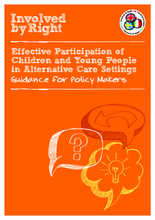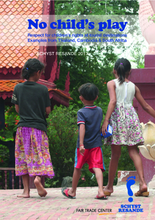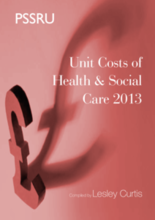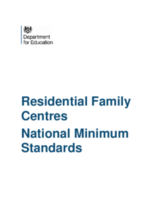

Displaying 1521 - 1530 of 1653
In this TED talk, Lemn Sissay recalls his experiences of the care system, the search for his birth family and the insights this has given him.
This article reports on the findings of research conducted by the TV Programme Panorama on some of the current practices and standards in the children’s residential care system in England, which were described by a charity representing children in care as “extremely worrying”.
This report presents the results of an exploratory study on education for children in care in Ireland. The overarching aim of this study is to identify how the Irish education system can best support attendance, participation and attainment in education by children in care.
This report, published by the National Society for the Prevention of Cruelty to Children (NSPCC) in the UK, highlights the need to improve outcomes for children leaving care and returning to parents or families. The NSPCC provides recommendations for policymakers and practitioners to improve the quality of assessment, planning, and preparation regarding when and if a child should be returned home from care and to increase the support for children and their families once they return to their families.
This Recommendation by the European Commission on Investing in Children, stresses the importance of early intervention and preventative approaches, and makes quality childcare one of its key policy areas to break the cycle of disadvantage in early years and reduce the risk of child poverty and social exclusion.
This guidance aims to raise awareness of the importance of children and young people in alternative care settings being able to make, influence and participate in decisions about their own lives, and other matters affecting them.
This paper reports on the evaluation of an English experiment which, for the first time, moved statutory social work support for children and young people in out-of-home care from the public to the private or independent sector.
This report was commissioned by the Swedish network Schyst Resande and conducted by the Fair Trade Center, with the overall objective of raising awareness of children’s rights in relation to tourism and travel destinations which many Swedish tourists visit.
This report is a compilation of health and social care costs in the UK for the year 2013, including an article and corresponding information on the costs of residential care for children.
This document contains the UK National Minimum Standards (NMS) applicable to residential family centres.






